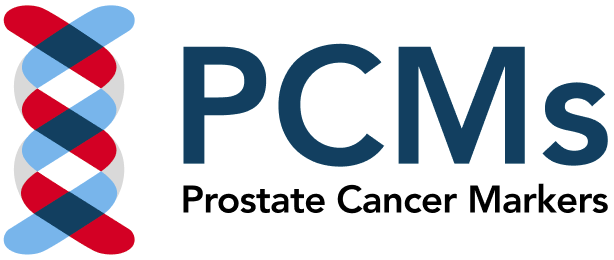Pinpoint False-Negative Biopsies with Confirm mdx test
Confirm mdx can help pinpoint a false-negative biopsy and identify men who are at high risk of aggressive prostate cancer. This test examines a sample of the previously-taken biopsy at the molecular level. Unfortunately, up to 30% of men with a negative biopsy actually have prostate cancer. Compared to other indications of prostate cancer, like a high PSA test or DRE exam, research shows Confirm mdx is a more accurate predictor of high-grade prostate cancer patient outcomes.

Confirm mdx Benefits
Confirm mdx allows healthcare providers to improve patient stratification and tailor treatment according to a patient’s risk of aggressive prostate cancer. Major benefits of the test include:
- Insights for GS≥7 (GG≥2) prostate cancer.
- The fact that it is clinically-validated in African American men, who are at higher risk for developing aggressive prostate cancer.
The test is covered by Medicare and can provide a cost savings of nearly $600 per patient. In addition, Confirm mdx is so effective and important that it is included in the National Comprehensive Cancer Network (NCCN) Early Detection for Prostate Cancer Guidelines.
Confirm mdx Physician Video
Learn more about how the Confirm mdx test can help improve identifying high-risk patients with negative biopsies.
For Healthcare Providers: How to Order the Confirm mdx Test
Healthcare providers can visit the Confirm mdx physician page here to order tests for your patients.
Below are additional frequently asked questions about the Confirm mdx test
Providers should use Confirm mdx with patients who have a negative biopsy but other risk factors, such as an abnormal DRE, elevated PSA, family history, or other signs of prostate cancer. Men with a cancer-negative (HGPIN, ASAP, atypia) prostate biopsy may benefit from insights provided by the Confirm mdx test. Confirm mdx can be used immediately after biopsy to confirm negative results, determine a patient’s risk for clinically significant prostate cancer and to help inform the patient’s prostate cancer risk management plan or need for rebiopsy/MRI.
Confirm mdx is a molecular diagnostic test that uses methylation-specific PCR (MSP) and cancer-associated epigenetic biomarkers to assess the likelihood of cancer being present when a standard biopsy is negative.
- Confirm mdx analyzes tissue from a previous biopsy to measure DNA methylation in three specific genes associated with prostate cancer: APC, RASSF1, and GSTP1.
- Results are presented as:
- Negative for hypermethylation, meaning a patient has a ≤ 4% risk of having clinically significant prostate cancer.
- Positive for hypermethylation, meaning a patient is at increased risk and should be monitored more closely or a follow up biopsy and/or MRI should be considered.
- A result demonstrates three risk categories:
- Overall risk of finding prostate cancer upon repeat biopsy.
- Percent risk of having low-grade cancer upon repeat prostate biopsy.
- Percent risk of having clinically significant prostate cancer (greater than or equal to Gleason 7) upon repeat prostate biopsy.
- A result demonstrates three risk categories:
There are more than 55 published studies that validate the Confirm mdx test. It is included in the National Comprehensive Cancer Network (NCCN) Guidelines.
Medical Studies Related to Confirm mdx
96% Negative Predictive Value for High-grade Cancer
This study shows that, when compared to other risk factors, detection of DNA-methylation in histopathologically negative biopsies was the most significant and important predictor of high-grade cancer, resulting in a negative predictive value of 96%.
Confirm mdx’s Effectiviness in Risk Stratification in African American Men
In studying 211 African American men, this research found that Confirm mdx is an effective tool in identifying high risk African American men who previously had a negative biopsy.
Reduced Rate of Repeated Prostate Biopsies with Confirm mdx
This clinical field utility study of 138 men found that those with negative biopsies who utilized the Confirm mdx test had a significantly lower rate of repeat biopsies.
%s

